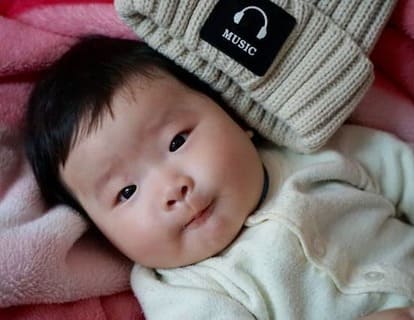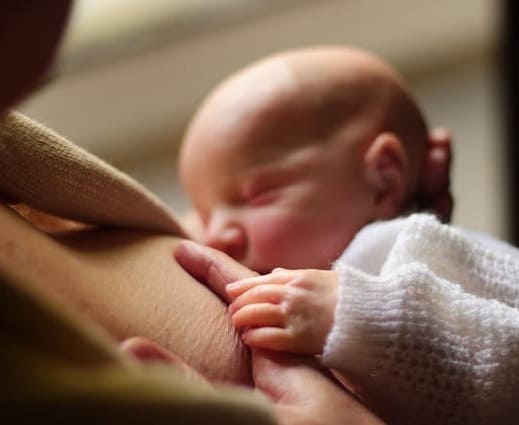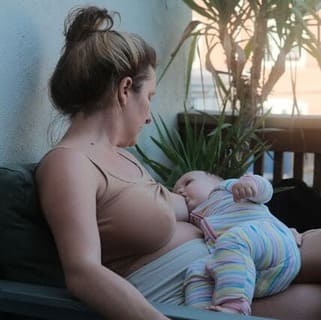Preparing Your Older Child for a New Sibling
Picture this: Your three-year-old stands at the front door, clutching a handmade “Welcome Home Baby!” sign that’s 90% glitter, 10% construction paper. Behind you, strapped in the car seat, is this impossibly tiny human who’s about to blow up your toddler’s entire world. Your older kid’s eyes are huge; equal parts excitement and “wait, is this thing staying forever?”
I’m not going to sugarcoat it: bringing home baby number two is wild. Your firstborn is about to discover that being the center of the universe isn’t a permanent gig, and they’re going to have FEELINGS about that.
And honestly? The baby is kind of the easy part at first. They sleep, they eat, they poop, repeat. It’s your older kid who’s going through an emotional crisis. While you’re worried about whether the baby’s latch is good enough, your toddler is spiraling about whether you love them anymore now that this loud, wrinkly competitor has shown up.
But here’s what I learned the hard way: with some prep work and a lot of patience (like, so much patience), you can make this transition actually work. Not perfect; let’s be realistic; but definitely less like a daily disaster.
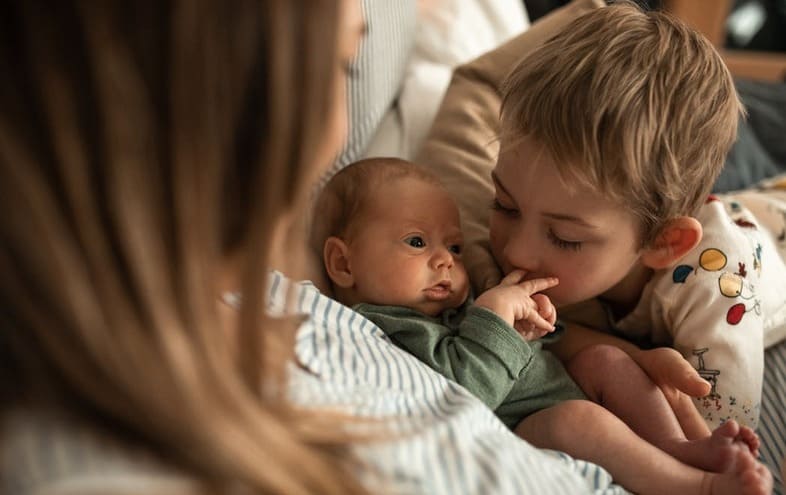
Why This Actually Matters (Beyond the Instagram Moments)
Your older kid has been living their best life. They’re the only star in the family show. Every photo on your phone? Them. Every family party? All eyes on them. You’ve spent the last however-many-years making them feel like they hung the moon.
And then suddenly there’s this other person. This tiny, screaming person who apparently needs constant attention and makes everyone go “awwww” while your older kid is literally RIGHT THERE doing something way more impressive than just lying there.
I know it sounds dramatic, but here’s the thing: how you handle these next few months actually shapes how your kids will treat each other for years to come. Maybe forever. Kids who feel like they matter during this chaos tend to bond with their siblings. Kids who feel pushed aside? They remember that. And it shows up in how they interact with their sibling later.
Understanding early childhood development helps parents navigate these crucial relationship-building years. The foundation you build now will impact their sibling relationship for life.
So yeah. No pressure or anything, but this matters.
The Prep Work: What to Do Before D-Day
Okay, so you’re pregnant, exhausted, probably nauseous, and now you’ve got to prepare your current child for the impending sibling invasion. Fun times.
But yeah, you do need to prep them. The catch? You can’t use the same approach for every age. What works for your barely-walking toddler is going to fall completely flat with your kindergartner who asks 400 questions a day.
If Your “Big Kid” Is Still Pretty Little (Ages 1-2)
Let’s be honest; your toddler is basically still a baby. They’re not going to understand “Mommy’s having a baby” in any meaningful way. And that’s fine. You’re playing the long game here.
Here’s what helped me:
Talk about the baby constantly, but make it sound exciting. “Baby Emma is coming soon!” Use the name if you’ve picked one. They won’t get it at first, but eventually that name becomes as familiar as “Daddy” or “Grandma.”
Buy every board book about new siblings you can find. Read them until you’re sick of them. The pictures do more work than the words at this age; they’ll start connecting “book baby” with “real baby.”
Get them a baby doll. Let them carry it around, try to feed it, put a diaper on its head (or wherever they decide diaper go). They’re processing by mimicking you, even if it looks chaotic.
Fair warning though: they’re probably going to have some regression issues when the baby arrives no matter what you do. Potty training accidents, wanting bottles again, the whole deal. It’s not a reflection on your prep work. It’s just how toddler brains work.
The Preschool Years (Ages 2-4)
This age is kind of hilarious and heartbreaking at the same time. They understand enough to get excited about being a big sibling, but they have zero concept of what babies actually DO (which is mostly nothing for the first few months). Also, their emotions at this age are HUGE. Like, full meltdown over the wrong color cup huge.
What worked for us:
Hype them up about their new title. “You’re going to be such an amazing big sister!” “Big brothers are so important!” Make it sound like they just got promoted to CEO of something. Because in a way, they kind of did.
Give them actual tasks. Let them “help” set up the nursery; folding baby socks (even if you have to refold them later), picking which stuffed animal goes where, choosing between two blankets. The key is making them feel involved in real decisions, not just busy work they can see right through.
Explain what’s going to happen when the baby comes. Who’s going to watch them when you go to the hospital? How long will you be gone? Will they get to visit? The unknown is terrifying at this age, so walk them through it step by step.
And here’s something I wish someone had told me: if you’re planning any big changes; moving them to a new room, transitioning to a big-kid bed, starting preschool; do it at least two months before the baby shows up. Otherwise, they’ll 100% believe the baby kicked them out of their crib, and that’s not exactly setting up a warm sibling relationship.
Older Kids (5+): They Can Handle The Truth
By this age, kids can actually have real conversations about what’s coming. They’re also smart enough to know when you’re feeding them BS, so don’t bother with the overly sanitized version of what babies are like.
Here’s the approach that worked:
Be honest. Tell them babies are adorable and cuddly, but they also cry at 2 AM, need their diaper changed approximately 47 times a day, and won’t actually DO anything interesting for months. Set realistic expectations now, or you’ll have a very disappointed five-year-old who thought they were getting a playmate and instead got a potato that screams.
If you’ve got friends or family with babies, spend some time with them. Let your kid see what babies are really like; the spit-up, the crying, the constant feeding. The reality check is valuable.
Give them actual choices that matter. Not “which pacifier should we buy” (they don’t care), but “what books should we read to the baby?” or “should we get the blue blanket or the yellow one?” Real decisions they can see the outcome of.
Pull out their baby photos and tell embarrassing stories about when they were little. “This is you having a meltdown because I gave you the wrong sippy cup!” It helps them see themselves in this process and makes them feel special about their own journey.
Welcome Home Baby… Now What?
So you’ve made it home from the hospital. You’re exhausted, hormonal, wearing the same sweatpants for the third day, and now you’ve got to help your older kid not feel completely abandoned. No big deal, right?
Here’s your real job for the next few weeks: make your older child feel like they’re part of Team Baby, not someone who got replaced by Team Baby.
Make Them Feel Important (Because They Are)
That welcome home sign they made? Act like it’s the most important thing that happened all day. Take 47 photos of them holding it. Send it to every family member. Make them feel like a celebrity.
When grandma calls to ask about the baby, hand the phone to your older kid first. Let THEM tell grandma about their new sibling. They’ll feel like the expert, which is exactly what you want.
Ask if they want to “introduce” the baby to their class (you’ll obviously facilitate this). Make them the ambassador. The VIP. The one with insider knowledge.
Give Them Real Responsibilities
Little kids can: grab a diaper when you need it (even if you have to tell them exactly where to look), pick which outfit the baby wears today, bring you a burp cloth, fetch wipes.
Bigger kids can: help with supervised bottle feeding, sing songs to the baby, “read” books (even if they’re making up the story), gently push the stroller while you walk next to them.
Dads can play a crucial role in supporting both children during this transition, using techniques from our dad-baby bonding guide to create special moments with the older child while mom tends to the baby.
The critical thing here; and I can’t stress this enough; is that these need to be REAL jobs, not pretend ones. Kids can smell fake responsibility from a mile away. If you ask them to do something and then immediately do it yourself or redo it, they’ll know it was pointless.
The One Thing You Cannot Skip: Alone Time
I don’t care how tired you are (and you will be SO tired). Your older kid needs time with you where the baby doesn’t exist. Not negotiable. Not optional. Essential.
Maintaining strong parent-child bonding during this transition is crucial for your older child’s emotional security.
How to actually make this happen when you’re running on 2 hours of sleep:
When the baby naps, resist the urge to immediately start folding laundry or finally brush your teeth. Spend at least some of that time with your older kid. Play their favorite game. Read their favorite book. Let them talk your ear off about dinosaurs or princesses or whatever they’re into.
Even 15-20 minutes at the park, just you and them, is worth more than you’d think. Leave the baby with your partner if possible. Make it a special outing.
During your special one-on-one time, practice healthy digital habits by putting devices away and giving your older child your full attention.
Keep their bedtime routine exactly the same. Same songs, same stories, same cuddle time. That consistency tells them their world hasn’t completely disappeared.
Weekends are clutch for this. One parent stays with the baby, the other takes the older kid for “big kid time.” Ice cream run, playground, library, whatever. Make it a thing.
Because here’s what this time really says to them: “You still matter. You’re still MY kid. The baby hasn’t erased you from my life.” And they desperately need to hear that message, even if they can’t articulate why.
Praise Everything (Specifically)
Your older kid is starving for your attention right now. STARVING. So when they do something good; anything good; make a big freaking deal out of it.
But here’s the key: be specific. “Good job” is white noise to kids. It means nothing.
Instead: “Wow, you were SO gentle touching the baby’s hand! That was really kind.” “Look! The baby is staring at you! They love watching their big brother.” “Thank you for getting me that diaper. You helped me so much just now.” “I noticed you waited really patiently while I was feeding the baby. That was hard, but you did it.”
See the difference? You’re naming exactly what they did well. And kids? They’ll repeat whatever gets them that specific, glowing attention from you. So catch them being good and make a production out of it.
When Your “Big Kid” Suddenly Acts Like a Baby
Okay, real talk time about the stuff nobody warns you about adequately. You’ve got this kid who was doing great; potty trained, sleeping through the night, using their words; and then baby arrives and suddenly it’s like they’ve time-traveled backward six months.
Your three-year-old who hasn’t had an accident in months? Peeing their pants. Your five-year-old who speaks in full sentences? Suddenly talking like a baby. Your sweet toddler? Asking when you’re taking the baby back to the hospital.
When your older child suddenly acts like a baby, they might also experience temper tantrums as they struggle with these big emotions. This is completely normal and part of their way of processing this major life change.
Fun times, right?
This Is Completely Normal (I Promise)
Here’s what you might see: Potty training accidents (often right after you finally threw out the last diaper) Wanting their old bottle or pacifier back Baby talk that makes you want to scream Meltdowns over things that never bothered them before Waking up at night when they’d been sleeping fine Velcro-ing themselves to your leg Acting out just to get ANY attention, even if it’s you being annoyed
And here’s what I need you to understand: You didn’t fail. This isn’t because you prepped wrong or loved them wrong or did anything wrong. Their little brain is trying to figure out how to handle this massive life change, and sometimes the only strategy they have is “maybe if I act like a baby, I’ll get the same attention the baby gets.”
It’s actually kind of logical when you think about it. Not helpful, but logical.
How To Actually Handle This Without Losing Your Mind
What helped us:
Practicing mindful and empathetic parenting can help you stay calm when your older child acts out. Ignore the baby behavior as much as you can. Don’t give it attention. But when they do something age-appropriate? Shower them with praise like they just won an Olympic medal.
Remind them how much they’ve grown. “Remember when you were a baby and you couldn’t even walk? Now you can RUN and JUMP and do somersaults! Babies can’t do any of that.” Make being a big kid sound amazing.
Pick your battles. Like, seriously. If they want to carry around their old stuffed animal 24/7 or sleep with an extra blanket, fine. Save your energy for the stuff that actually matters.
Physical touch is huge. Extra hugs, more cuddles, lap time whenever possible. Sometimes their body needs reassurance that their words can’t ask for.
Name their feelings for them. “I know it’s frustrating when I have to feed the baby and can’t play with you right now. That’s a hard feeling.” Just acknowledging it helps more than you’d think.
What definitely doesn’t help:
Getting mad about the regression. I know it’s annoying when they pee their pants for the third time today, but anger makes it worse. They’re not doing it AT you.
Comparing them to the baby. “Why can’t you be quiet like your sister?” is basically pouring gasoline on the jealousy fire.
Expecting them to be excited about the baby all the time. Sometimes they just don’t care, or actively don’t like the baby right now. That’s allowed.
Forcing affection. “Give your brother a kiss!” No. Let that relationship develop on their timeline, not yours.
Mistakes I’ve Seen (And Maybe Made)
Suddenly They’re “The Big Kid” For Everything
So your three-year-old is now the older sibling, which apparently means they should suddenly be able to get dressed by themselves, pour their own milk, and handle all their emotions perfectly? Yeah, no.
They’re still little. The baby showing up didn’t magically make them five years older.
What works better: Celebrate the times they ARE being a big kid, but don’t use it as an excuse to strip away their little kid needs. They can be both. They can be the big sister who helps with diapers AND still need you to cut their sandwich a certain way or they’ll have a meltdown. That’s normal.
Playing The Comparison Game
“Your sister never cried this much when she was a baby.” “You were sleeping through the night by now.” “Your brother learned to walk way earlier than you did.”
Look, I know you’re tired and frustrated, but comparing your kids to each other is like… it’s poison for sibling relationships. Nothing good ever comes from it.
What works better: Treat each kid as their own person. Celebrate what makes them unique. The goal isn’t to make them the same; it’s to help them both feel valued for who they are.
Forcing Them To Love The Baby Right Now
You can’t manufacture feelings. You can’t force “go give your sister a kiss” or “tell your brother you love him” and expect it to magically create a bond. Sometimes they don’t like the baby yet. And honestly? That’s fine.
What works better: Let it happen on their schedule. Show them how to be gentle. Point out when the baby looks at them or smiles at them. But don’t demand affection they’re not feeling. That bond will come; it just needs time.
Forgetting They Still Need You
In the absolute chaos of having a newborn; the feeding every two hours, the diaper explosions, the trying to figure out why they’re crying THIS time; it’s really easy to just… forget that your older kid still exists and has needs.
They end up expected to just cope with this massive change while you’re giving 99% of your attention to the baby.
What works better: Their needs didn’t vanish. Make time for them on purpose, not just in the leftover scraps of your day. Schedule it if you have to. But make it happen.
Saying “Be Gentle” 4,000 Times A Day
“Be gentle. BE GENTLE. I said BE GENTLE.” You become a broken record, and kids have an amazing ability to tune out things they’ve heard too many times.
Plus, constantly warning them not to be rough can backfire; now they’re super curious about what happens if they’re NOT gentle.
What works better: Show them gentle touches. Praise the hell out of them when they are gentle. And supervise closely so you can step in before they’re rough, instead of just warning them constantly.
Thinking Long-Term: Building A Real Relationship
Start Building Connection Early
The baby isn’t going to be a baby forever (thank god, right?). You’re playing the long game here; building a sibling relationship that hopefully lasts their whole lives.
Small things that helped us:
Let your older kid “read” to the baby. They’ll make up the whole story, the baby won’t care, and your older kid feels important.
Have them tell the baby about their day. “Tell your sister about the park!” The baby has no idea what’s being said, but your older kid is building this habit of sharing with their sibling.
Point out every time the baby looks at them. “Look! The baby is staring at you! They love you so much!” Make your older kid feel like they’re the baby’s favorite person.
Take photos of them together; lots of them; and actually display them around the house. Not just on your phone where nobody sees them.
Create little traditions that are just theirs:
Maybe your older kid picks the song you sing to the baby before bed. Maybe they’re in charge of making the baby laugh during bath time. Whatever it is, make it THEIR special thing with the baby.
As The Baby Gets Bigger: Keep It Fair
Don’t always make the older one share everything just because they’re older. Sometimes their stuff is THEIR stuff, and the baby needs to learn that.
Give your older kid some special “big kid only” privileges. They stay up later. They get to pick the movie sometimes. They get treats the baby can’t have yet. Being older needs to have some perks, not just more responsibilities.
Protect their space. The baby cannot just bulldoze through the older kid’s Lego castle they spent an hour building. Set boundaries that protect both kids.
And please, please don’t make your older kid into an unpaid babysitter as they get older. Helping out? Sure. Being solely responsible? No.
Make Them A Team, Not Competitors
Talk about them as a unit. “You two are going to have so much fun together when baby gets bigger!”
When you praise them, make it about their individual strengths, not about who’s better. “You’re both so special in different ways.”
The goal is teammates, not rivals. Frame it that way from day one.
The Stuff You Need To Remember
-
Match your approach to their age: What works for a two-year-old bombs with a six-year-old. Toddlers need simple, preschoolers need involvement, older kids need honesty.
-
Start prep early: Don’t wait until you’re in labor to mention there’s a baby coming. Books, dolls, conversations; start months ahead.
-
Give them real work, not fake jobs: They can tell when you’re just keeping them busy versus actually needing their help.
-
Alone time is not optional: I cannot stress this enough. They need time with you where the baby doesn’t exist. Schedule it. Protect it.
-
Regression happens to everyone: Your potty-trained kid will have accidents. Your verbal kid will baby talk. It’s not your fault. Just be patient and praise the good stuff.
-
Be specific when you praise: “Good job” means nothing. “You were so gentle with the baby’s hand” means everything.
-
Don’t force the relationship: Let them bond on their timeline, not yours. Some kids fall in love with the baby immediately. Some take months. Both are fine.
-
Keep their world stable: Same bedtime routine. Same special activities. Same traditions. Everything else is changing; keep some things the same.
-
Never compare them: To each other, to other kids, to how they were as babies. Just don’t do it.
-
Frame them as teammates: From day one, talk about them as a unit working together, not as competitors for your attention.
The Real Talk Ending
Look, I’m not going to lie to you: this is hard. You’re running on no sleep, your hormones are doing wild things, you’re trying to keep a tiny human alive, AND you’ve got to manage your older kid’s emotional meltdown about whether they’re still important to you.
Managing work-life balance becomes even more challenging with two children, but remember that this transition is temporary and you’re building something beautiful.
Some days will be magical. Your three-year-old will gently stroke the baby’s head and whisper “I love you” and you’ll cry because it’s so sweet.
Other days, they’ll ask when you’re taking the baby back to the hospital, or try to put the baby in the donation bin, or have a complete breakdown because you’re holding the baby instead of them.
Both of these are normal. Both are part of the process.
Here’s the thing about sibling bonds: they don’t just appear fully formed the day you bring the baby home. Sometimes it takes weeks. Sometimes months. Sometimes it takes until the baby gets interesting enough to play with. That’s all okay.
Your job right now isn’t to manufacture an instant perfect relationship. Your job is way simpler (though not easier):
- Make your older kid feel loved and secure
- Help them put words to their big feelings
- Create chances for them to connect with the baby
- Be patient when they struggle (and they will struggle)
The beautiful sibling relationship you’re hoping for? It’s coming. But it’s slow-building, not instant. Give it time and space and a lot of grace.
If you do nothing else this week, do these four things:
- Have one real conversation with your older kid about the baby (match it to their age)
- Set aside 15 actual minutes of just-you-and-them time every single day
- Give them one specific, real job they can help with
- Catch them doing something good and praise the hell out of it
That’s it. You don’t have to be perfect. You just have to try.
Because you’re not just bringing home a baby. You’re teaching your older child about love and patience and making space for other people. You’re showing them what family means. You’re building something that’ll last their whole lives.
And yeah, right now it feels like chaos. Someone’s always crying (including you, probably). Nobody’s sleeping. Your house is a disaster. Your older kid just had a meltdown because you held the baby for too long.
But you know what? You’re doing it. That’s what matters.
Welcome home, baby. And huge congratulations to your older kid on becoming a sibling. They’re going to be amazing at this; they just need you to help them figure out how.
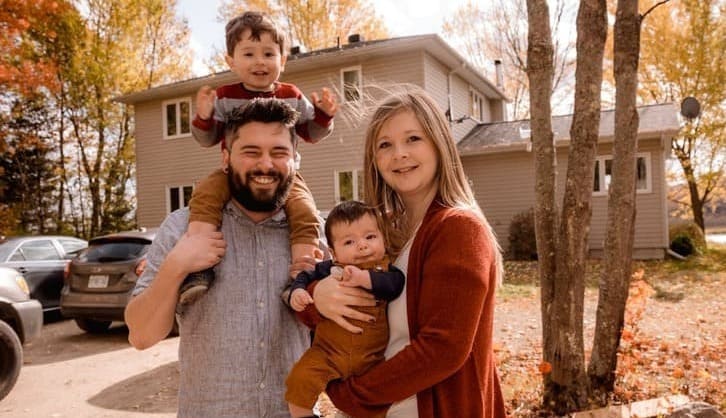
Related Articles
- The Power of Bonding: Building a Strong Parent Child Bond - Learn how to strengthen your connection with your older child during this transition
- Mindful and Empathetic Parenting: Nurturing Connection - Discover techniques for staying calm and connected during challenging moments
- Temper Tantrums: Managing Your Child’s Emotional Outbursts - Handle emotional outbursts with empathy and understanding
- New Dad Bonding Guide: 0-3 Month Baby Tips - Help dads create special moments with both children
- A Guide for Achieving Work-Life Balance for Parents - Navigate the challenges of parenting multiple children while maintaining balance
References
- Zero to Three. Supporting Siblings When a New Baby Arrives
- American Academy of Pediatrics. Preparing Your Family for a New Baby
- Child Development Institute. Sibling Rivalry and the New Baby
- Psychology Today. How to Help Your Child Adjust to a New Sibling
